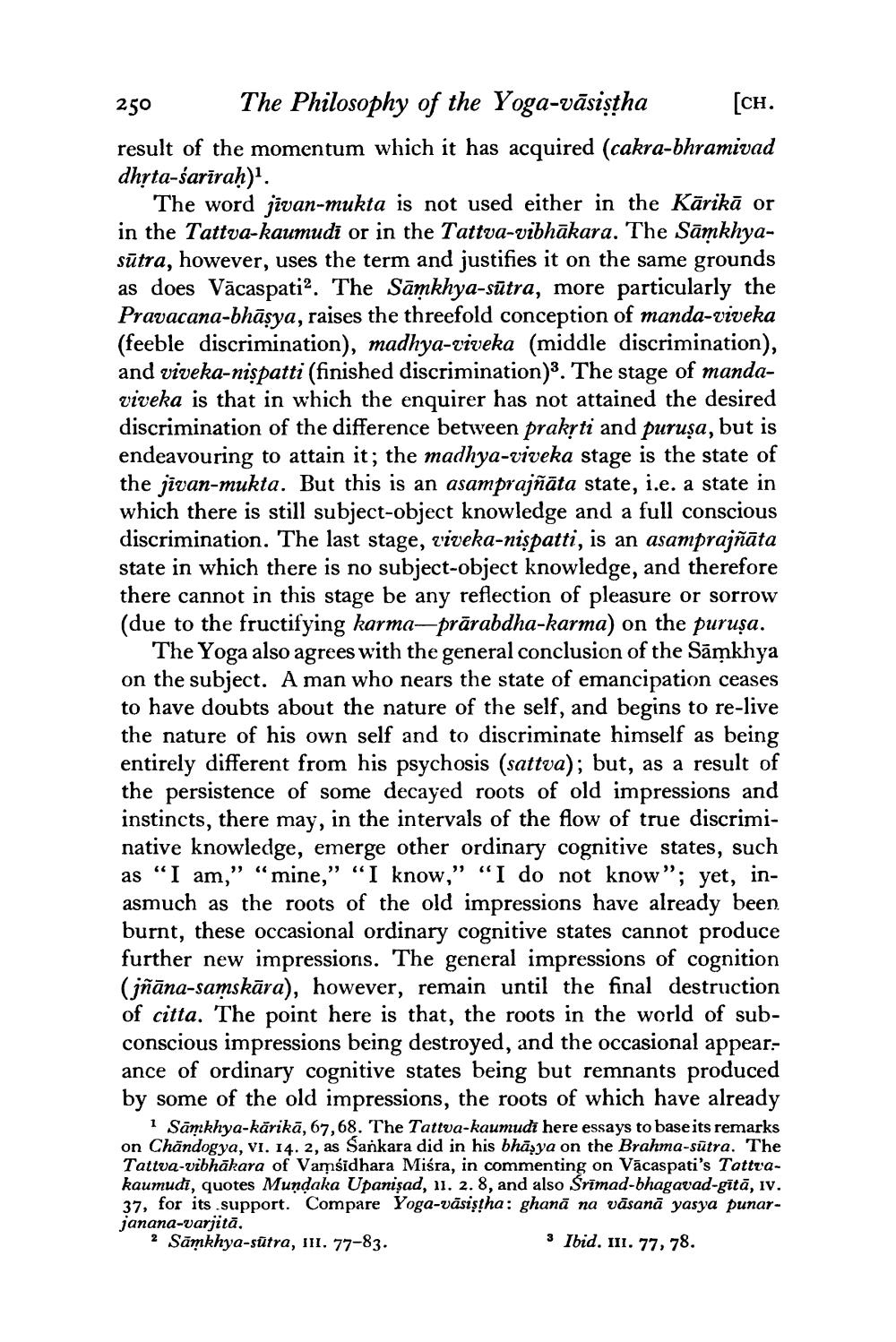________________
250
The Philosophy of the Yoga-vasistha
result of the momentum which it has acquired (cakra-bhramivad dhṛta-sariraḥ)1.
[CH.
The word jivan-mukta is not used either in the Kārikā or in the Tattva-kaumudi or in the Tattva-vibhākara. The Samkhyasūtra, however, uses the term and justifies it on the same grounds as does Vacaspati2. The Samkhya-sutra, more particularly the Pravacana-bhāṣya, raises the threefold conception of manda-viveka (feeble discrimination), madhya-viveka (middle discrimination), and viveka-nispatti (finished discrimination)3. The stage of mandaviveka is that in which the enquirer has not attained the desired discrimination of the difference between prakṛti and puruşa, but is endeavouring to attain it; the madhya-viveka stage is the state of the jivan-mukta. But this is an asamprajñāta state, i.e. a state in which there is still subject-object knowledge and a full conscious discrimination. The last stage, viveka-nişpatti, is an asamprajñāta state in which there is no subject-object knowledge, and therefore there cannot in this stage be any reflection of pleasure or sorrow (due to the fructifying karma—prārabdha-karma) on the purușa.
The Yoga also agrees with the general conclusion of the Samkhya on the subject. A man who nears the state of emancipation ceases to have doubts about the nature of the self, and begins to re-live the nature of his own self and to discriminate himself as being entirely different from his psychosis (sattva); but, as a result of the persistence of some decayed roots of old impressions and instincts, there may, in the intervals of the flow of true discriminative knowledge, emerge other ordinary cognitive states, such as "I am,' ," "mine," "I know," "I do not know"; yet, inasmuch as the roots of the old impressions have already been burnt, these occasional ordinary cognitive states cannot produce further new impressions. The general impressions of cognition (jñāna-samskāra), however, remain until the final destruction of citta. The point here is that, the roots in the world of subconscious impressions being destroyed, and the occasional appearance of ordinary cognitive states being but remnants produced by some of the old impressions, the roots of which have already
1 Sāmkhya-kārikā, 67, 68. The Tattva-kaumudi here essays to base its remarks on Chandogya, VI. 14. 2, as Sankara did in his bhāṣya on the Brahma-sutra. The Tattva-vibhakara of Vamsidhara Miśra, in commenting on Vacaspati's Tattvakaumudi, quotes Mundaka Upanisad, 11. 2. 8, and also Śrīmad-bhagavad-gītā, IV. 37, for its support. Compare Yoga-väsiṣṭha: ghanā na vāsanā yasya punarjanana-varjitā. 3 Ibid. III. 77, 78.
2 Samkhya-sutra, III. 77-83.




